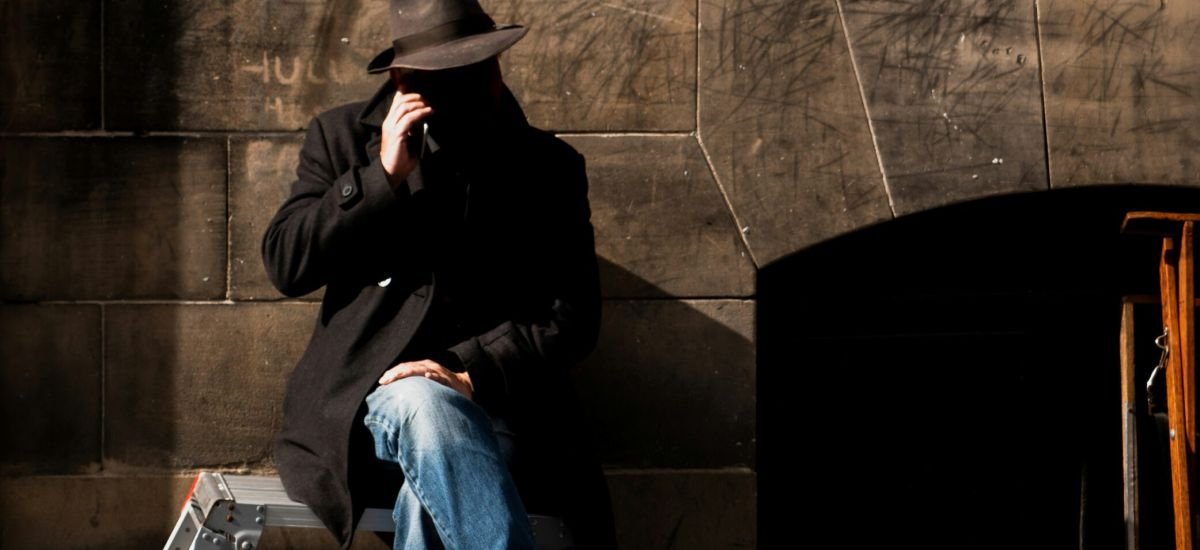Creation vs Distraction: Making the Most of Your Leisure Time

Understanding Our Downtime
In the hustle of our daily routines, the way we unwind often becomes a habitual afterthought. We’re all guilty of it, coming home, crashing on the couch, and letting the latest binge-worthy TV series fill our evenings.
But what if we reconsidered this routine as many self-help gurus suggest?
What if our downtime became a launchpad for creation and learning rather than just consumption of Television and other media?
What would it look like if we tried swapping or at least substituting some of the distractions and passive entertainments for creative activities or personal growth through learning new skills?
If you know me at all, you know that I love facts.
According to a report by ourworldindata.org, the average person spends between 61 and 137 minutes per day (1–2 hours) of their leisure time in front of the TV or radio. That is almost double the average time they spend with friends and on par with how much time they spend eating and drinking. That’s a substantial portion of our lives (anything from 7–14 hours a week) devoted to, let’s be honest, mostly watching other people either live out their lives or acting about it.

The Appeal of Passive Entertainment
Do you know how long it would take for you to watch the entire “Friends” sitcom from start to finish? The answer is 5,213 minutes or 86 hours and 53 minutes (and for the purposes of this article, I’ll just use 87 hours).
I know almost everyone I meet has watched Friends (I am an exception apparently) which means that they have chosen to spend 87 hours of their time in front of the television, ‘relaxing’, unwinding, laughing, or ‘escaping’ as many people like to call it.
Passive entertainment is appealing, because it is an easy escape, it is readily accessible, and requires minimal effort to trigger that little injection of dopamine into our system. That little high is perfect to help us unwind after a long stressful day coping with the modern age work/life balance, the stress of being stuck in traffic with nowhere to go and life in general. On top of that, we need a little something to combat the news agencies primed to sell us “doomsday bad news” publicised anywhere your eyes traverse. (An article for another day)
What if this is something that we have been “trained” to accept as the norm?
Sure, “Friends” is comfort viewing, a distraction, and a nostalgic escape from reality and also apparently incredibly amusing. Laughter is also a wonderful way to de-stress, however, there are a few questions I believe we should be asking ourselves when we invest so much time into anything:
1. Am I happy with the returns on the investment of my time?
2. Is this activity the best way for me to achieve the results that I want?
3. What is the net input vs outcome and is this scalable?
In other words, does every hour that I have spent during this activy come to an end in terms of some reward, or can it still be valuable as time goes on, like learning a new language or skill?
4. Does this activity positively affect one, or more of the following categories of my health:
a. Emotional b. Mental c. Physical
5. At what point is this activity becoming more of a distraction and a habit, than an activity that I invest my time into for me to achieve a certain goal?
In other words, am I addicted to binge watching series because I’m escaping the problems in my life?
P.s We can easily interchange “Television” with “Playstation”, “Computer games”, “Social Media” etc.
The Benefits of Creative Activities Imagine a scenario where those 86 hours were spent differently? Let us pretend that we spent that time learning or creating something new, like Italian or re-creating a recipe from a memory of our childhood. Now I have actually done this exercise, a while ago, I decided to make Gnocchi from scratch just like my grandma did when I was a kid, and she would enlist me to help her.
In retrospect, I can answer the questions that we listed above using this example.
1. Recalling this evening, I remember using a different ingredient as I had to look up a recipe that she used to make and was immediately reminded of fond memories of my childhood, smells of my grandmother’s kitchen and images of her face smiling at me, which in turn rekindled my love for cooking and reminded me of a very special time in my life. Sharing the meal with someone also brought me closer to them and allowed them to know a bit more about me, so overall it was a great investment of time.
2. Well at the time, the result I wanted was to make something special for someone who was coming over for dinner so, another yes. Cooking destresses me, gives me a sense of purpose, puts me in a zone where I either don’t think about things, or I get super focused and solve problems while I cook.
3. On a net scale, every hour that I spend learning a new way of cooking, perfecting a recipe or just coming up with new dishes increases the benefits going forward because I get better at the skill of cooking, I can cook with more confidence and ability, and I have a larger variety of meals that I can create or experiment with.
4. Cooking allows me to benefit Emotionally, Mentally and while my heart rate doesn’t get much activity while I’m cooking, physically, I don’t do myself much good because I really enjoy traditional pasta’s way too much.
5. If I could train myself to cook healthy meals more often, the benefits to my physical health would be many added years to my life.
How About Learning a New Skill?
A Project Management Certification from Google (Course here) has an estimated time to complete at 6 months at 10 hours a week which is approximately 240 hours depending on your pace. I recently managed to do it in 2 months at an average of 2 hours an evening and 5 hours over a weekend.
That worked out to about 120 hours for me or the combination of “Friends” and “LOTR” and a few “Marvel movies”. While this was not only an investment in myself from a skills perspective, but I also managed to plug a gap in my knowledge base that has been on my radar for some time now, so this counts as a small victory for me.
According to the Foreign Service Institute, to achieve a conversational proficiency in Italian requires anything from 600–750 hours, this would equate to 1–2 years at approx 10 hours a week.
Now that is a lot of time and investment and if we had to use watching TV as a benchmark it would probably look like this:
– The Simpsons — Over 30 seasons, averaging about 22 minutes per episode, totals approximately 300+ hours.
– Friends — 10 seasons, with 236 episodes, each about 22 minutes, adds up to around 86 hours.
– Grey’s Anatomy — With 17 seasons, each averaging about 20 hours, the total viewing time is approximately 340 hours.
– Marvel Cinematic Universe (MCU) Movies — The MCU comprises over 20 movies with an average runtime of about 2 hours each. Watching all of them would add around 50 hours.
Now let me ask you this question, do you recall in detail anything material from any of the series that I have mentioned above, assuming you have watched any of them, apart from a few memorable scenes or talking points?
Surely that doesn’t compare to being able to speak Italian conversationally for the rest of your life.
Balance is the Secret Sauce.
So, what do we do?
Do we give up the old square box and start learning Italian?
The answer for me is a little bit of both, depending on how healthy you want your life to be and how challenging it is right now.
Some distraction is good to take our minds off the pressing things that cause us stress while not costing much in terms of energy and effort. While Creation and Self Improvement is more energy dependent, the rewards tend to last longer and have benefits in wider areas of our lives.
There is some benefit to couch time with a loved one watching something that gives us a laugh or releases a tear and a repressed memory.
However, there is limited benefit to repeating this activity for extended periods of time.
Read that again.
It does not help to create a habit out of distractions and escapism, we know this, yet we binge watch an entire season in a weekend and then feel sad that we have nothing to replace it with.
Balance really is the secret sauce.
I’m not sure what “balance” looks like to you but that is for you to decide. Maybe you watch only one episode an evening, or maybe it’s only on “Date Night” every Wednesday. A bigger chunk of time should be set aside though for being creative or learning new skills. This should take centre stage in my opinion and through this we can only improve our lives, and the lives of the people around us.
What can be a greater, more revolutionary act of love and kindness than to gift those we love, a wiser and healthier, more skilled, and interesting, longer-lived version of ourselves.
To end off, the next time you get home and you find yourself reaching for the remote and catch a brief realisation that another episode of “The Bachelor” is becoming more of a habit than a way to unwind after a tough day, consider digging around in your cupboards for that box of paintbrushes or that recipe book, or call your Italian friend and say “Buonasera, vuoi venire a mio casa, vado a cucinare la pasta!”.
You might just surprise yourself with what you can achieve.


